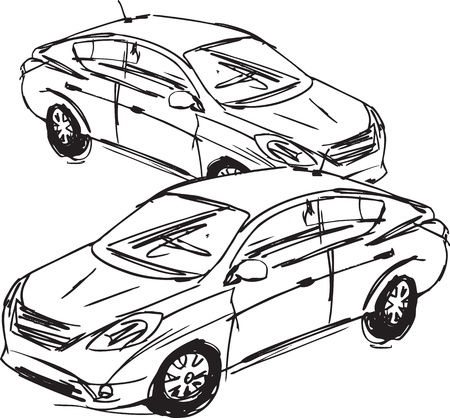1. Introduction: The Rise of Midsize Pickups in the U.S. Market
Midsize pickups are experiencing a remarkable surge in popularity across the United States, capturing the attention of American drivers from coast to coast. Once overshadowed by their full-size counterparts, today’s midsize trucks are carving out a significant niche in the automotive landscape. This growing trend can be attributed to evolving lifestyles, changing priorities, and advances in truck technology. For many buyers, midsize pickups strike an appealing balance between rugged power and everyday efficiency—qualities that resonate deeply with American values of versatility and practicality. As more consumers seek vehicles that offer both capability and comfort without compromising on fuel economy or maneuverability, midsize pickups are standing out as the smart choice for work, adventure, and daily commutes alike. Whether it’s for navigating city streets or hitting off-road trails, these trucks deliver the performance and convenience modern drivers demand, making them a focal point in today’s competitive auto market.
2. Power on Demand: Performance and Capability
When it comes to performance, midsize pickups have truly stepped up their game. Modern models are engineered to deliver impressive horsepower and torque, ensuring that drivers don’t have to sacrifice power for a smaller footprint. Many midsize trucks now come equipped with advanced V6 engines or turbocharged four-cylinders, offering plenty of muscle for daily driving, weekend adventures, or demanding work tasks. But how do they measure up against their full-size counterparts when put to the test in real-world scenarios like towing, hauling, and off-roading?
| Specification | Midsize Pickup (e.g., Toyota Tacoma) | Full-Size Pickup (e.g., Ford F-150) |
|---|---|---|
| Horsepower Range | 180–310 hp | 290–450+ hp |
| Towing Capacity | 5,000–7,700 lbs | 8,200–14,000 lbs |
| Payload Capacity | 1,200–1,700 lbs | 1,500–3,300 lbs |
While full-size trucks still lead the pack in sheer numbers, midsize pickups offer more than enough strength for most Americans’ needs. Whether you’re towing a small camper, hauling home improvement supplies, or carrying outdoor gear, these midsize options often hit the sweet spot between power and practicality. Plus, their lighter weight and more compact size can make them easier to maneuver and park—especially in city environments or tight worksites. In everyday life, this means you get robust capability without feeling like you’re wrangling a giant vehicle every time you hit the road.

3. Fuel Efficiency: Doing More with Less
One of the most compelling reasons American drivers are drawn to midsize pickups is their impressive strides in fuel efficiency. Gone are the days when owning a pickup meant constantly feeling the pinch at the gas station. Thanks to innovative engineering, today’s midsize trucks are equipped with advanced powertrains—turbocharged four-cylinders, efficient V6s, and even hybrid options—that maximize miles per gallon without sacrificing the strength needed for work and play.
Leading manufacturers have invested heavily in lightweight materials like high-strength steel and aluminum, reducing vehicle weight while maintaining structural integrity. This not only improves fuel economy but also enhances handling and overall performance. Technologies such as automatic start-stop systems, cylinder deactivation, and smart transmission mapping further optimize every drop of fuel.
Comparing Fuel Economy: Midsize vs. Full-Size Pickups
| Model | Engine Type | EPA Estimated MPG (City/Highway) |
|---|---|---|
| Toyota Tacoma | 2.7L I4 | 20/23 |
| Ford Ranger | 2.3L Turbo I4 | 21/26 |
| Chevy Colorado | 2.7L Turbo I4 | 20/25 |
| Ram 1500 (Full-Size) | 3.6L V6 Mild Hybrid | 20/25 |
This table highlights how midsize pickups generally offer similar or even better fuel economy compared to some full-size models—all while maintaining the practical towing and hauling capabilities that American truck owners demand.
The Bottom Line on Savings
Midsize pickups empower drivers to do more with less by delivering real-world utility paired with wallet-friendly operating costs. Whether you’re commuting in the city, hitting the trails on weekends, or hauling gear for a project, these trucks keep you moving forward without constantly worrying about your next fill-up.
4. Practicality and Lifestyle Compatibility
Midsize pickups have become increasingly popular among Americans because they seamlessly blend into a wide range of lifestyles. Whether youre a contractor who needs a dependable workhorse, a weekend warrior chasing adventure, or a busy parent juggling family responsibilities, midsize trucks offer the versatility you crave without the bulk of full-size models.
Meeting Diverse Needs
Modern Americans expect their vehicles to do more than just get them from point A to B. Midsize pickups rise to the challenge by offering practical solutions for various activities:
| Use Case | Benefits of Midsize Pickups |
|---|---|
| Work & Business | Ample towing capacity, manageable size for city driving, and sufficient bed space for tools or equipment |
| Outdoor Adventures | Off-road capabilities, higher ground clearance, and room for gear like bikes or kayaks |
| Family Life | Spacious cabs with modern safety features, comfortable seating, and flexible storage options |
Urban and Suburban Friendly
The smaller footprint of midsize pickups makes them easier to park and maneuver in urban settings compared to full-size trucks. This is especially appealing in American cities where parking can be tight. Additionally, fuel efficiency improvements mean you won’t have to sacrifice daily drivability for utility.
Lifestyle Compatibility at a Glance
- Flexible Interiors: Foldable rear seats and under-seat storage cater to families and solo adventurers alike.
- Towing & Hauling: Capable enough for small boats, campers, or work trailers without overkill.
- Tech-Forward: Infotainment systems, smartphone integration, and advanced driver-assist features keep up with modern demands.
Conclusion: A Perfect Fit for Modern America?
Midsize pickups are more than just scaled-down trucks—they’re thoughtfully engineered to fit the evolving needs of American drivers. By offering a compelling mix of practicality and lifestyle compatibility, these vehicles make it easy to see why theyre winning over so many households across the country.
Affordability and Value: Getting More for Your Money
When it comes to midsize pickups, affordability and overall value are major selling points for American buyers. These trucks offer a sweet spot between the lower sticker prices of compact pickups and the sometimes eye-watering costs of full-size trucks. But is the value proposition as good as it seems? Let’s break down average pricing, insurance rates, and resale values to see how these workhorses stack up.
Average Pricing: Competitive Entry Points
Midsize pickups generally start in the low-to-mid $30,000 range, depending on trim levels, engine options, and features. While you can certainly spec out a fully loaded model that climbs north of $45,000, most popular configurations stay within a reasonable budget for many families and small business owners. Here’s a quick comparison:
| Vehicle Type | Average Starting Price (2024) |
|---|---|
| Midsize Pickup (e.g., Toyota Tacoma, Ford Ranger) | $32,000 |
| Full-Size Pickup (e.g., Ford F-150, Chevy Silverado 1500) | $42,000 |
| Compact Pickup (e.g., Ford Maverick) | $25,000 |
Insurance Costs: A Reasonable Middle Ground
Insurance premiums for midsize pickups typically fall between those for compact and full-size trucks. Their moderate size and safety features often translate into lower risk profiles with insurers. For example:
| Vehicle Type | Average Annual Insurance Cost |
|---|---|
| Midsize Pickup | $1,500–$1,800 |
| Full-Size Pickup | $1,700–$2,100 |
| Compact Pickup | $1,300–$1,600 |
Resale Value: Holding Strong Over Time
Midsize pickups consistently earn high marks for long-term value retention. Brands like Toyota (Tacoma) and Honda (Ridgeline) are especially known for their strong resale performance—some even outperforming full-size models after five years of ownership. This can make them an especially smart buy for those who plan to upgrade every few years or want to minimize depreciation.
The Bottom Line on Value
If you’re looking for a truck that balances initial affordability with manageable insurance costs and impressive resale value, midsize pickups should definitely be on your radar. They deliver more bang for your buck—without sacrificing too much power or utility—making them a compelling choice for budget-conscious Americans who still need a capable ride.
6. The Verdict: Are Midsize Pickups the Ultimate Middle Ground?
Midsize pickups have carved out a solid niche in the American automotive landscape, offering a blend of features that appeal to a diverse range of drivers. To help you decide if these trucks truly strike the right balance between power and efficiency for your lifestyle, lets break down their key advantages and drawbacks.
Pros and Cons of Midsize Pickups
Pros |
Cons |
|---|---|
|
|
Who Should Choose a Midsize Pickup?
If your daily routine involves navigating city streets but you still need a vehicle with enough muscle for weekend adventures, home improvement projects, or light-duty towing, a midsize pickup could be your sweet spot. These trucks are ideal for outdoor enthusiasts, small business owners, and families who want versatility without committing to the bulk (and cost) of a full-size truck.
Final Thoughts
Midsize pickups offer a compelling compromise between power, utility, and everyday usability. While they may not match the sheer capability of heavy-duty models or the comfort of large SUVs, their versatility makes them uniquely American—ready for work, play, and everything in between. Ultimately, whether a midsize pickup is your perfect match depends on how you prioritize capability, efficiency, and lifestyle needs.


